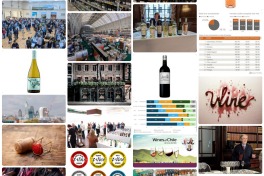Champagne
-

Champagne Bruno Paillard Cuvée 72
Last year I explored the superb Champagne Bruno Paillard Première Cuvée and now we turn to an evolution of that expression from the limited edition Champagne Bruno Paillard Late Disgorgement Collection, released to mark 40 years since the inception of their Perpetual Reserve. Where most Champagne houses store their reserve wines in isolation, at Maison…
-
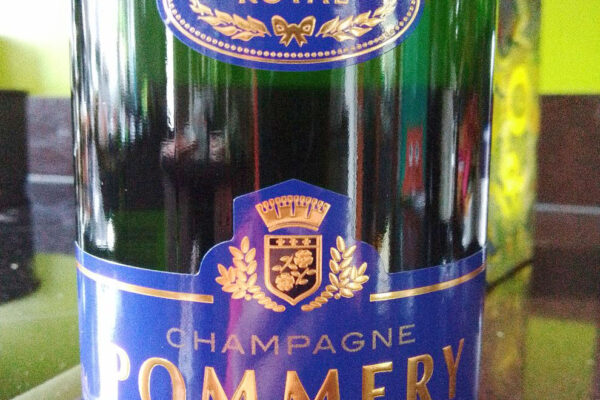
Louis Pommery Brut Royal
Pommery was the first Champagne house to introduce a Brut style with low dosage back in 1874. ‘Brut Royal’ is the flagship non-vintage cuvée of the house, created to capture the essence of Pommery’s style, which is centred on liveliness, finesse and freshness. This non-vintage wine sits at 12.5% ABV and is composed of 34%…
-
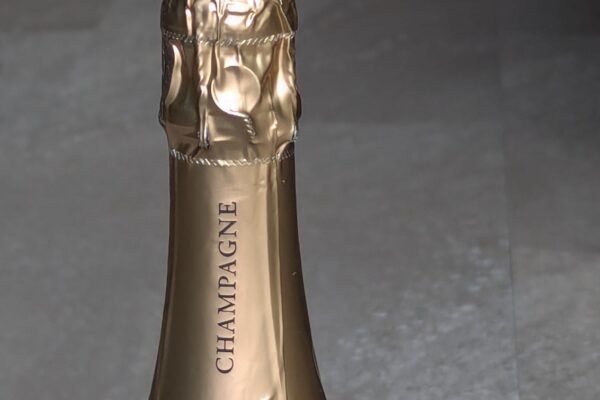
Champagne Foil Debate Ends as Tradition Yields to Choice
The Drinks Business is reporting that the Comité Champagne has dropped its opposition to an EU ruling that makes neck foils on Champagne bottles optional, concluding after new research that removing them neither harms sales nor damages the region’s image. The decision follows years of debate across the sparkling-wine world. English producers have argued that…
-
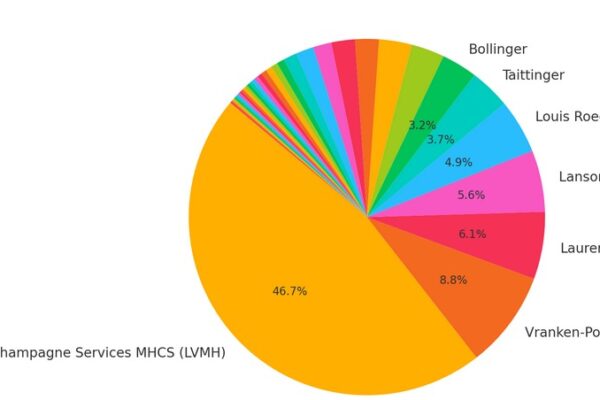
Insights into the Champagne Market
The American Association of Wine Economists recently shared an enlightening table of the main champagne houses by turnover. The 2024 champagne market was worth roughly €3.92 billion. Moët Hennessy alone commands nearly 46.66% of the market, with the top three producers together holding about 61.59%, and the top five controlling over 72.1%. The median turnover…
-
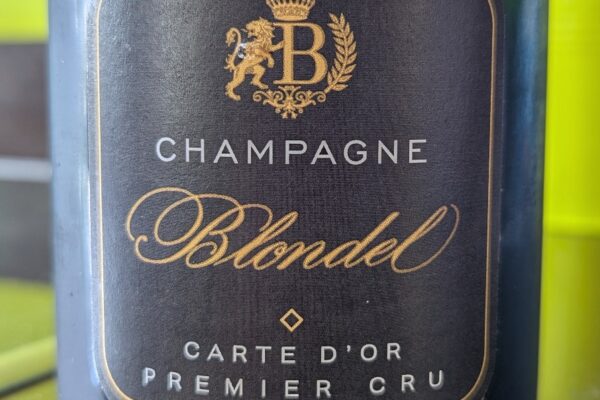
Blondel Champagne Premier Cru
I first discovered this Champagne at an Asda tasting, where it immediately stood out to me. I was keen to try it again, particularly as I’ve found that some Champagnes I’ve enjoyed at tastings have often not lived up to expectations when revisited later. Thankfully, that wasn’t the case this time. Produced by Blondel from…
-

Understanding Champagne
Champagne, the world’s most celebrated sparkling wine, has captivated connoisseurs for centuries with its effervescence, complexity and prestige. This sparkling wine has evolved from humble beginnings to become a global symbol of celebration and luxury, with a rich history, distinctive production methods and diverse styles that continue to evolve to meet contemporary challenges and tastes….
-

The Definitive Champagne Tasting
On the first day of April 2025, I attended The Definitive Champagne Tasting, a two-floor event held at the Tate Modern in London. Organised by the UK’s Champagne Shippers’ Association, it marked the first generic Champagne trade tasting in London since 2018. With 51 producers represented, including Champagne houses, cooperatives, and growers, the event featured…
-
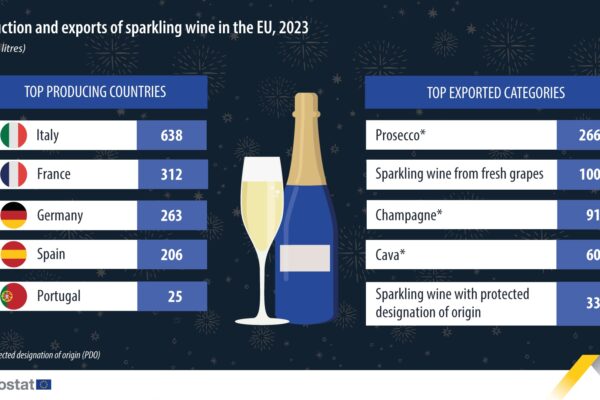
EU Sparkling Wine Production and Exports Down 8%
Eurostat, the EU’s official statistics body, is reporting an 8% decline in sparkling wine production and exports in 2023 (yes, 2023, see below). The EU produced 1.496 billion litres of sparkling wine, down from 1.624 billion litres in 2022. Italy led production with 638 million litres, followed by France with 312 million (224 million litres…
-
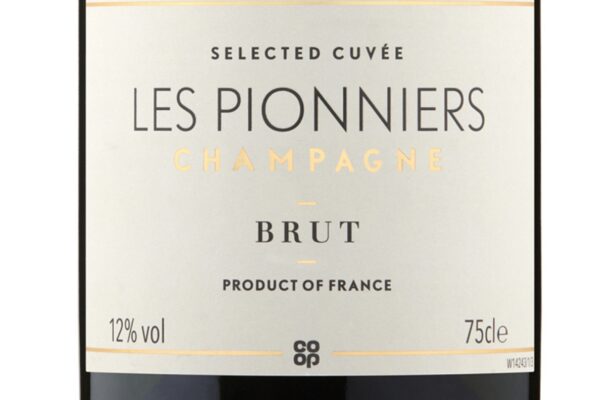
Co-op Les Pionniers NV
Co-op’s award-winning Champagne is on offer to Co-op Members for just £15.00 (was £21.50) between 18th and 24th December 2024. Read my review.
-
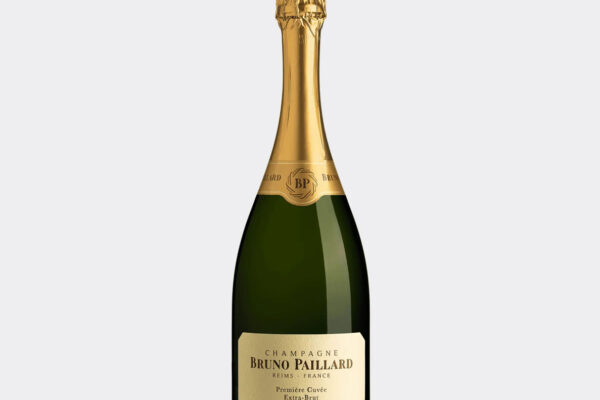
Champagne Bruno Paillard Première Cuvée
Maison Bruno Paillard is one of Champagne’s few remaining independent, family-owned Houses. They take pride in their ‘Perpetual Reserve’, an impressive collection of reserve wines dating back to 1985, blended with the latest vintage to produce their signature Multi Vintage Champagnes. This blend features 45% Pinot Noir, 33% Chardonnay, and 22% Pinot Meunier, all from…
-
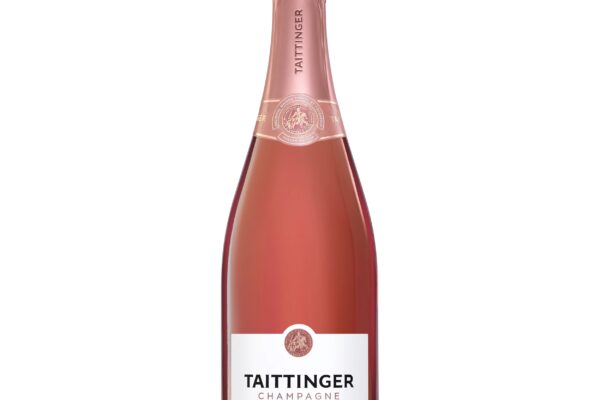
Taittinger Prestige Rosé
This Champagne, primarily from the 2019 vintage, is a blend of 45% Pinot Noir, 30% Chardonnay, and 25% Meunier, with an ABV of 12.5%. This wine has gained high praise, winning accolades from critics such as James Suckling, Wine Spectator, Decanter and Robert Parker. It has also earned a Gold Medal at the Concours des…
-

Sparkling Wine Purchase Factors
There’s new study-based research (PDF download) into recent sparkling wine consumers in Ontario, Canada, offering insights into the cues that drive their purchase decisions. Sparkling wine’s global market is experiencing significant growth. This uptrend is notable given the distinct nature of sparkling wine, often purchased for celebrations rather than regular consumption. Research has highlighted the…
-
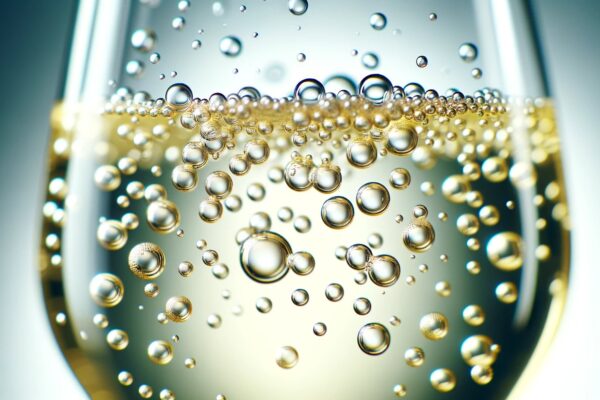
Champagne Industry 2023 Retrospective
Recent data has highlighted a notable shift in the Champagne market for the year 2023. Following three years of exceptional performance, Champagne shipments have reverted to pre-pandemic levels, with a total of 299 million bottles shipped, marking an 8.2% decrease from the previous year. The industry witnessed a significant slump in 2020 with an 18%…
-

Sparkling Wines From Three Continents
The 2023 holiday season gave me the opportunity to try a few affordable Champagne and sparkling wines from three different continents: Les Pionniers Non Vintage Champagne Les Pionniers Non Vintage Champagne is a great example of how quality and affordability can come together. Despite the Co-op’s discretion about its origins, it’s an open secret that…
-

Champagne Masterclass with Nicolas Jaeger
On 11th December 2023, from 7:00 to 8:00 pm, there’s an online Champagne masterclass for Wine Society Members. This session features Alfred Gratien’s chef de cave, Nicolas Jaeger, who will be joined by the Wine Society’s Champagne buyer Sarah Knowles MW and Ewan Murray from the Tastings Team. Together, they will discuss the various Champagne…
-
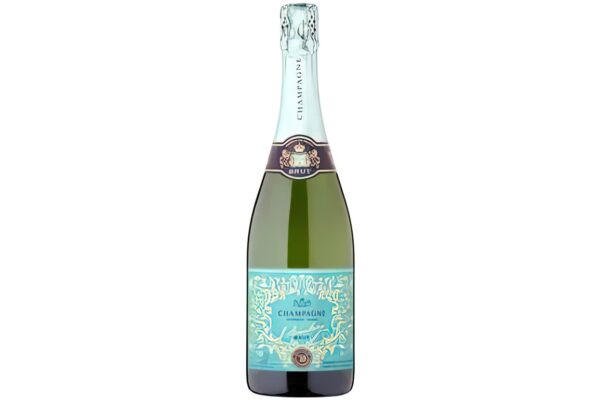
Sainsbury’s Brut Non Vintage Champagne
This champagne, crafted by Louis Kremer Champagne House, uses 20% reserve wines in its blend. “Salty, nutty notes are joined by intense green apple fruit on the nose. A green cooking apple character on the palate sits alongside roasted nuts and a lively acid backbone. It has a wonderful vibrancy that makes this a useful…
Did You Know?
For Crémant, grapes must be harvested by hand and the wines must undergo at least nine months’ ageing before release. More
In 2024, the UK was the second-largest export market for Champagne globally, after the United States. More
Local UK bottling of wine represents about 40% of imported wine. More
Around 1% of people, typically severe asthmatics, have a sulphite sensitivity. More
A large 80% of Australian wine arrives in the UK in bulk. More
Only about 0.02% of Australia’s landmass is dedicated to vineyards. More
In 2024, New Zealand produced only 1% of the World’s wine. More
In 2024, the US imported 37% of World production of Pinot Grigio and the UK was is in second place at 27%. More
In 2024, the UK was South Africa’s largest export market, with 40% of total exports. More
In 2024, the United Kingdom imported 22.3 million bottles of Champagne, a decline of 12.7% compared to the previous year. More
Larger Champagne producers source grapes from as many as 80 different vineyards throughout Champagne. More
Champagne houses and growers collectively produce around 300 million bottles annually. More
In 2025, the Champagne region was home to about 2,124 Champagne houses and approximately 19,000 growers. More
Provence is one of the leaders in the conversion to organic viticulture, with 61% of vineyards certified. More
8% of the South Africa’s grape production is Fairtrade-certified. More
Up to 80% of wine aroma compounds come from grape skins. More
Glycerol is the third-largest component of most dry wines after water and alcohol which is why they so often feel ‘smooth’ or ‘silky’ in the mouth. More
Humans are more than 400 times more sensitive to bitter than sweet. More
Humans can detect the earthy molecule geosmin at about 100 parts per trillion and camels are so sensitive to it they can locate damp ground from roughly 50 miles away. More
During the phylloxera crisis of the nineteenth century, 90% of Europe’s vineyards were destroyed. More
In 2025, for La Vieille Ferme, also known as “The Chicken Wine”, sales surged by 49.4% to £110.8 million. More
In 2025, in the UK, Yellow Tail held the top position with sales, marking a 9.8% increase over the previous year. More
In 2024, the UK was the second-largest wine importer in volume and value. More
In 2024, the UK was the fifth-largest wine-consuming country globally. More
In 2025, global wine consumption continued its downward trend, estimated at 214.2 million hectolitres, the lowest since 1961. More
In 2025, online alcohol sales had a 20% increase in value over five years. More
In 2025, the number of UK vineyards rose to 1,104 and wineries to 238, with land under vine expanding to 4,841 hectares, a 510% increase since 2005. More
Moët Hennessy alone commands nearly 46.66% of the Champagne market, with the top three producers together holding about 61%, and the top five controlling over 72%. More
In 2024, the Champagne market was worth roughly €3.92 billion. More
In the marketing year 2023/24, white wine accounted for roughly 55% of Spain’s output, whereas red and rosé together made up about 45%. More
In the UK, 92% of wine is consumed within 48hrs of purchase. More
The majority of wines, 95%, use commercial rather than wild yeast. More
Between 0.5 and 10 litres of water, per litre of wine, are needed for cleaning during winemaking. More
Machine harvesting can achieve up to 100 tons of fruit per day vs 1 ton for a human. More
In Germany, 2025 was the smallest wine vintage since 2010. More
The majority of vineyards, 90% in 2019, are farmed with heavy chemical interventions. Only 6% are organic. More
90% of low and coastal areas in south Europe and California will no longer be able to produce good wine by the end of the century. More
IMAGE WALL
Tools
Recent
-
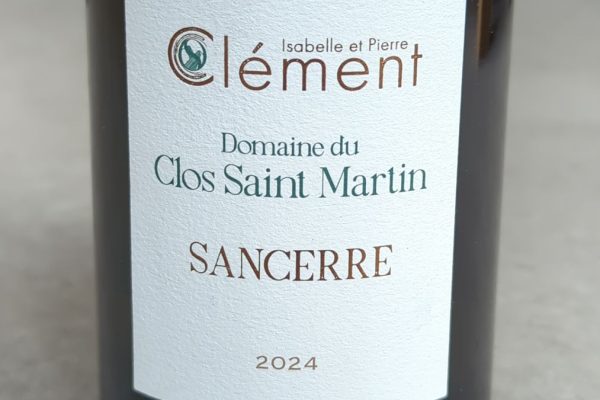
Domaine du Clos Saint Martin Sancerre
-
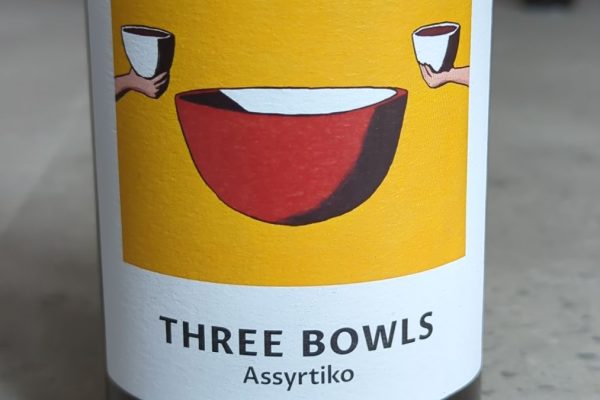
Three Bowls Assyrtiko
-
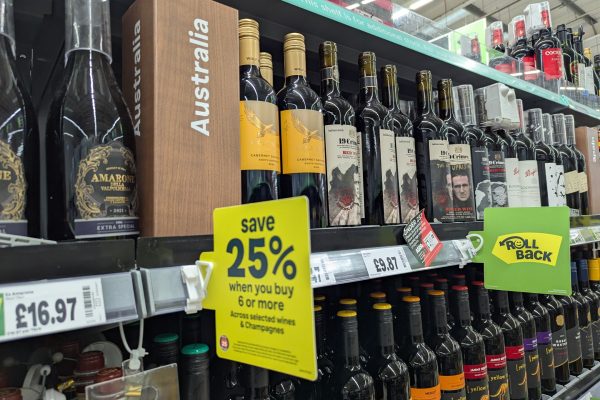
25% Off Wine at Asda
-
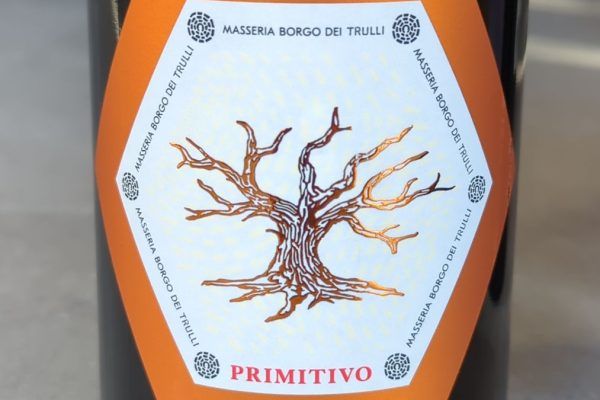
Lucale Primitivo Appassimento
-
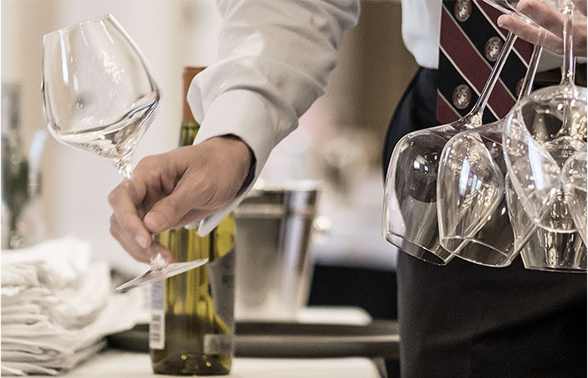
UK’s Top Restaurant Wine Lists Revealed
-
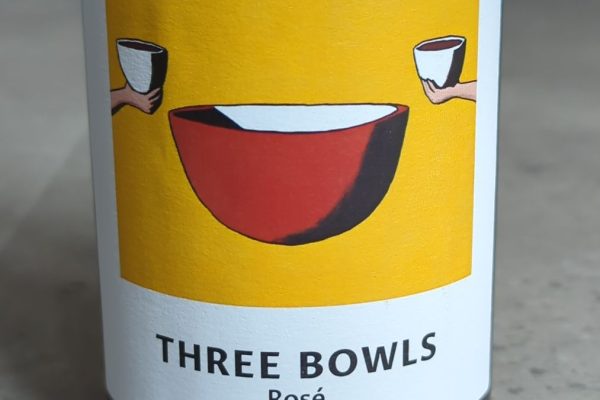
Three Bowls Rosé
-
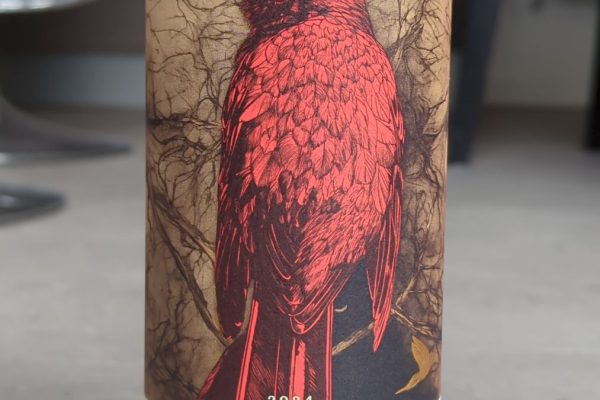
Salvio Ribera de Duero
-
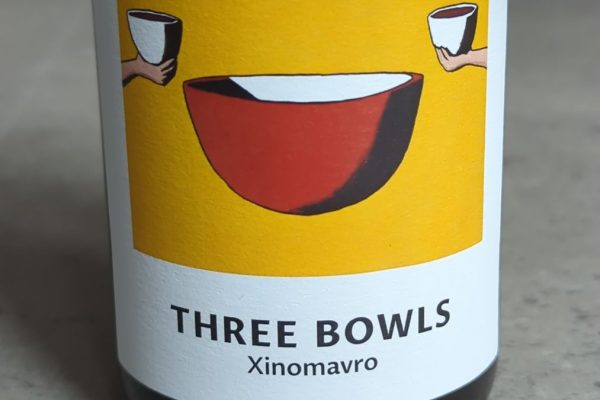
Three Bowls Xinomavro
-
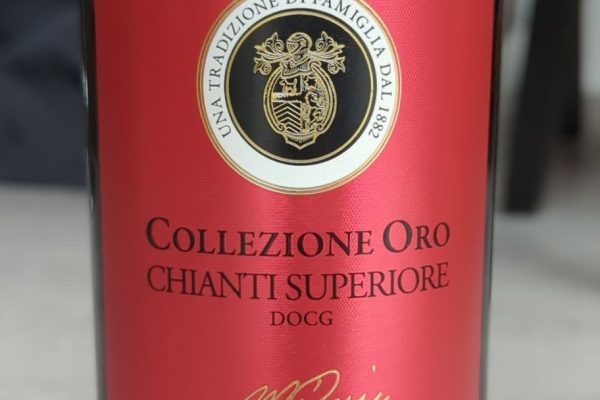
Piccini Collezione Oro Chianti Superiore
-
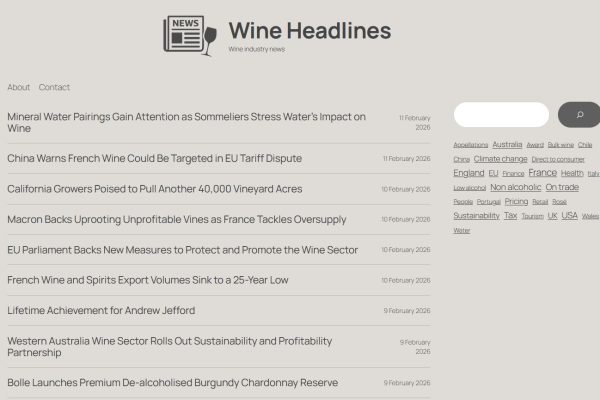
Introducing Wine Headlines: Daily Industry News
Tags
25% Off Wine Aldi Amarone Argentina Articles Asda Australia Award Awards25 Bibendum Bizarre Blog Books Bordeaux Bulk Bottling Cabernet Sauvignon Carménère Cava Champagne Chardonnay Chenin Blanc Chile Climate Change Coop Costco Decanter Duty English Wine EPR Events Fairtrade Food France Furmint Germany Glossary Greece Health Hungary Italy IWSC Jeroboams Laithwaites Legislation Liberty Wines Lidl Low Alcohol M&S Majestic Malbec Merch Merlot Morrisons Natural News New Zealand Non-Alcoholic Ocado Old Vine Organic Past Tastings Pinotage Pinot Noir Port Portugal Primitivo Prosecco Regulations Reviews Ribera del Duero Riesling Rioja Ripasso Rose Sainsbury's Saperavi Sauvignon Blanc Shiraz Sicily South Africa Spain Sparkling Supermarkets Sustainable Tax Terroir Tesco The Wine Society Unrepresented USA Valpolicella Virgin Wines Waitrose Wanderlust Welsh Wine What to Buy Wine Art WineGB WIne Glasses Zinfandel




